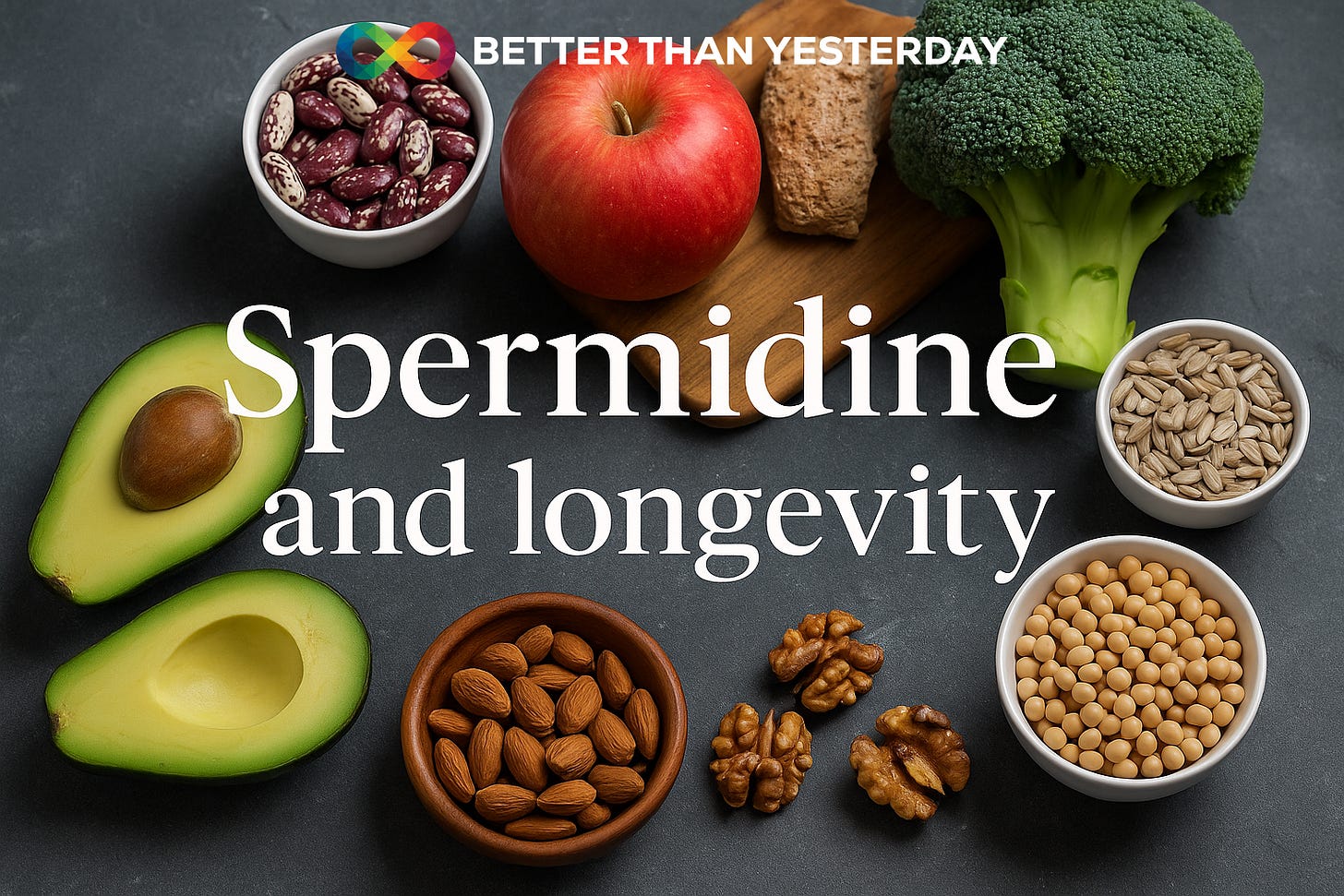Could Spermidine Be the Key to Aging Slower?
A cellular reboot in your food, and maybe your future.

What If There Was a Molecule That Mimicked Fasting?
You’ve probably heard that fasting can slow aging. It boosts autophagy, cleans up cellular junk, protects mitochondria, and may extend life.
But what if you could get those same effects... without skipping meals?
That’s exactly what spermidine seems to do.
It’s a natural compound found in some foods, and it's getting serious attention from aging researchers around the world.
🧠 What Does Spermidine Actually Do?
Spermidine flips on autophagy, your body’s cellular reset system.
It helps clean up damaged proteins and organelles before they turn toxic.
It also:
Powers up your mitochondria (the energy engines of your cells)
Protects brain cells and memory
Reduces inflammation
Fights oxidative stress
Boosts nitric oxide, which improves blood flow and cardiovascular function
And unlike many synthetic supplements, spermidine is naturally made in your gut microbiome and found in real food.
🥦 Where Can You Get It?
You can get spermidine from:
Mushrooms
Aged cheese
Broccoli
Peas and lentils
Fermented soy (like natto)
Wheat germ and some nuts
Your gut makes it too, if you eat enough fiber to keep your microbes happy.
Still, levels decline with age, and some experts think that might be a big reason why our bodies age in the first place.
⏳ Longevity Without Fasting?
This is where things get exciting.
A 2024 Nature study found that fasting doesn’t trigger autophagy without spermidine present.
In other words: no spermidine, no benefits. Fasting doesn’t work.
That puts spermidine in a new light, not just helpful, but essential to how fasting actually protects our cells.
That’s why scientists now classify it as a Caloric Restriction Mimetic (CRM) — a compound that mimics fasting’s effects without the stress of not eating.
In animals, spermidine:
Extended lifespan
Protected against heart disease and neurodegeneration
Enhanced memory
Reduced tumor growth
Boosted immune defense when combined with cancer therapy
And in human studies, higher dietary spermidine was linked to lower rates of cardiovascular disease and cancer-related death.
🧬 What’s Happening Inside Your Cells?
Spermidine doesn’t just help clean up old cells.
It also improves how cells generate energy, helps manage stress, and slows down senescence (when cells stop dividing and start causing trouble).
All of that makes it a multi-targeted biohack for:
Longevity
Brain health
Metabolic stability
Possibly even cancer prevention
⚠️ Is It Safe for Everyone?
Spermidine is generally well-tolerated, and because it’s already in food, clinical trials are moving forward.
But people with advanced cancer or kidney disease should talk to their doctor first.
(Autophagy is complex, and in some cases, it can help cancer cells too.)
🧩 Our Thoughts
We’re still learning about spermidine.
But it checks all the boxes: safe, natural, effective, and backed by serious science.
It may not be a miracle pill.
But as part of a smart longevity routine: food, fiber, maybe supplements, it’s a powerful piece of the puzzle.
Sources:


